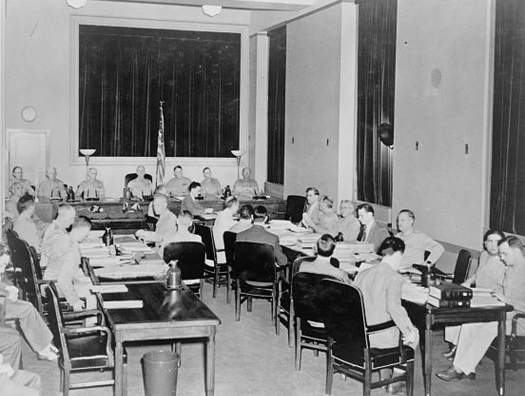| << Chapter < Page | Chapter >> Page > |
Finally, the writ of
habeas corpus is used in our common-law legal system to demand that a neutral judge decide whether someone has been lawfully detained. Particularly in times of war, or even in response to threats against national security, the government has held suspected enemy agents without access to civilian courts, often without access to lawyers or a defense, seeking instead to try them before military tribunals or detain them indefinitely without trial. For example, during the Civil War, President Abraham Lincoln detained suspected Confederate saboteurs and sympathizers in Union-controlled states and attempted to have them tried in
military court s, leading the Supreme Court to rule in
Ex parte Milligan that the government could not bypass the civilian court system in states where it was operating.
During World War II, the Roosevelt administration interned Japanese Americans and had other suspected enemy agents—including U.S. citizens—tried by military courts rather than by the civilian justice system, a choice the Supreme Court upheld in
Ex parte Quirin (
[link] ).

Debate has always swirled over these issues. The
Federalists reasoned that the limited set of enumerated powers of Congress, along with the limitations on those powers in
Article I , Section 9, would suffice, and no separate bill of rights was needed. Alexander
Hamilton , writing as Publius in
Federalist No. 84, argued that the Constitution was “merely intended to regulate the general political interests of the nation,” rather than to concern itself with “the regulation of every species of personal and private concerns.” Hamilton went on to argue that listing some rights might actually be dangerous, because it would provide a pretext for people to claim that rights
not included in such a list were not protected. Later, James
Madison , in his speech introducing the proposed amendments that would become the Bill of Rights, acknowledged another Federalist argument: “It has been said, that a bill of rights is not necessary, because the establishment of this government has not repealed those declarations of rights which are added to the several state constitutions.”

Notification Switch
Would you like to follow the 'American government' conversation and receive update notifications?